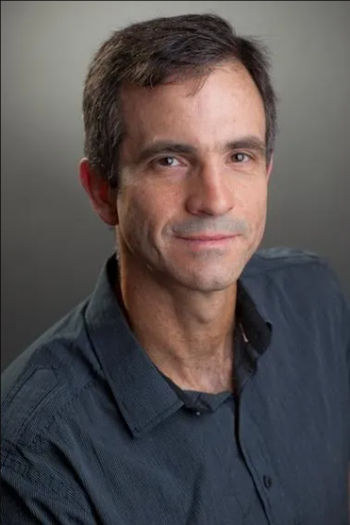An interview with Motif partner Dr. Alejandro Marangoni, University of Guelph and Coasun, Inc.
The food industry has been working to create better tasting, more nutritious plant-based foods for decades, but traditional approaches have not lived up to consumer expectations. At Motif, we believe the best way to tackle a difficult problem is to break it down to its fundamental elements, thinking beyond traditional food-science constraints to design new and craveworthy innovations that consumers want.
At the heart of our unique approach is a network of strong partnerships with academic and technical experts across a wide range of disciplines – from materials science to biotechnology. By bringing together leading researchers and commercial partners to apply science in new ways, we’re able to deliver breakthroughs for plant-based foods.
Today, we announced an update on one of those major partnerships with Dr. Alejandro Marangoni, Professor of Food, Health and Aging at the University of Guelph and founder of Coasun, Inc.
The expansion of our collaboration provides Motif exclusive access to two new technologies – extrudable fat and prolamin – that will enable plant-based cheese on a sandwich or pizza that actually stretches and melts, and plant-based meat with marbleized fat like a ribeye steak.
We sat down with Dr. Marangoni to learn more about his work with Motif and where he’s excited to see plant-based food innovation go next.

Dr. Alejandro Marangoni, Tier I Canada Research Chair of Food, Health and Aging at the University of Guelph and founder of Coasun, Inc.
MOTIF FOODWORKS: What drew you to the research challenge of improving plant-based foods?
DR. ALEJANDRO MARANGONI: My interest in plant-based foods stems from an altruistic reason. If we do not change our relationship with the planet, we will not survive much longer. We need to drastically change our diet and energy usage. Food production is one of the largest contributors to greenhouse gases and habitat destruction. We need to substitute much of our animal-based foods with their plant-based counterparts to try to slow down the detrimental effects we are having on the planet.
MF: Can you tell us more about your role and work at the University of Guelph and Coasun? How did you come to work with Motif?
AM: I was appointed as Assistant Professor in the Department of Food Science at the University of Guelph in August of 1991. My work focuses on the materials science of foods, with particular interest in fat structure and crystallization. The expertise I gained as a professor allowed me to develop a novel structured emulsion used to replace palm oil and hydrogenated fats in baking applications. We also developed oil-gelling technologies based on ethylcellulose. The patents related to fats and oleogels are held through my company, Coasun Inc. I first started collaborating with Motif in 2019 through an existing relationship with Stefan Baier, the company’s Head of Food Science.
MF: Were there any surprises you encountered or a significant lesson learned during the collaboration with Motif?
AM: During this work we became aware of the great variability that exists in the raw materials for plant-based foods, specifically proteins. Commercial proteins can have very large differences in functionality even from the same source. This is an area that needs improvement and will be the focus of future research.
MF: How would you describe your experience partnering with Motif’s team?
AM: Motif has been very open to innovation and working together with me. They have allowed for considerable freedom in the development of the science and technology they are interested in. The scientists at Motif have always been keen in getting involved and contributing directly to projects. They also move very quickly from a commercial perspective.
MF: What future opportunities to continue collaborating in the plant-based space are you excited about?
AM: Developing fat systems for extrusion, as well as other plant-based food applications. We want to fully replace coconut oil as the fat of choice in plant-based food applications. We would also like to develop a deep understanding of the molecular and microstructural basis for plant protein functionality in meat and dairy alternative products.
MF: Is there anything else about the science behind creating these extrudable fat and prolamin technologies that you’d like to share?
AM: It is important to think outside the box and do something different, but also to base your work on solid chemistry and physics. Motif’s unique, science-forward approach to collaboration is helping to unlock new possibilities for plant-based food that is better for people and the planet.